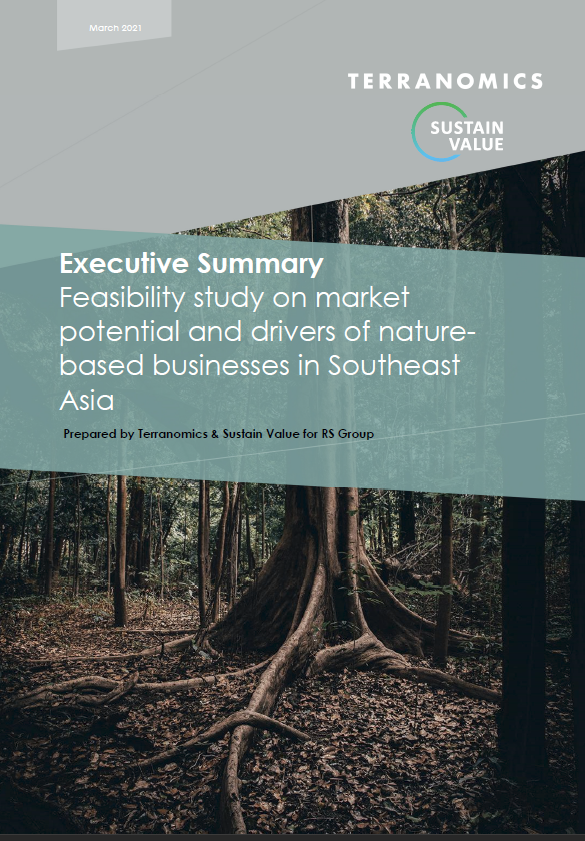What is the
Natural Capital Initiative?
The Natural Capital Initiative (NCI) is a new program launched in 2019 under RS Group’s Climate Change initiative. Via NCI, we will put our own capital, as well as hope to attract other investment capital, into supporting innovative nature-based investment solutions to value, protect, and restore the world’s natural assets that all our lives depend upon.
What is Natural Capital?
Natural capital are ecosystem services provided freely by natural assets (such as land, soil, air, plants, animals, etc.) that are critical for humanity’s existence.
While the fostering of natural capital is often understood as “conservation”, our definition of “natural capital related solutions” is broader, with the following criteria:
- Business models related to natural ecosystems, including both traditional business models (e.g., sustainable timber, sustainable fisheries, etc.), newer conservation based business models (e.g. marine protected area management, carbon based projects) as well as innovative business models (e.g. spatial finance/big data solutions and block chain related supply chain traceability);
and
- Business models engaging local communities in whatever activities are proposed for the area to (i) respect their rights as owners or users of the land for their livelihoods, (ii) avoid negative impact on their livelihoods (e.g. logging and alternative incomes), (iii) often the activities will naturally involve them to work (e.g. sustainable fisheries and agriculture).
Why invest
in Natural Capital?
(Source: independent report released by the “Campaign for Nature” and National Geographic, put together by over 100 economists and scientists) |
Estimates indicate each year nature provides approximately US$72 trillion worth of self-renewing and infinitely sustainable essential goods and services, including water, land, light, warmth, soil, air, plants, fish and animals– worth more than four times the entire US economy.
Investing in Natural Capital is the most efficient and effective way of valuing, protecting and sustaining the world’s natural assets, mitigating climate change and protecting the natural assets critical for our existence.
The “Little Book of Investing in Nature” estimates that natural capital will be worth US$722 – 967 billion a year by 2030. Today, only US$143 billion a year is being directed to global biodiversity. To bridge this massive funding gap, private sector funding urgently needs to be leveraged.
[ultimate_spacer height=”350″]
[ultimate_spacer height=”350″]
Asia
– a critical need
Despite Asia’s wealth of natural capital, which generates 30% of its GDP, Asia has disproportionately underfunded the protection of these important assets.
The region’s runaway economic growth over the last few decades have resulted in widespread deterioration of its land, freshwater, and marine ecosystems, resulting in both water and food insecurity, and an increasing vulnerability to climate change.
Billions of people
at risk
Myanmar, the Philippines, Vietnam, and Thailand – are all among the top ten countries globally at serious risk from climate change.
It is estimated 60% of grasslands in Asia are already degraded, putting up to 135 million people at risk of distress migration over the next 30 years. By 2050, up to 90% of the coral in South and South-East Asia will also have suffered severe degradation, while up to 3.4 billion people will be living in water-stressed areas.
[ultimate_spacer height=”350″]
Our initiatives
In order to bridge the massive funding gap in global biodiversity finance, we see a need to build more viable business models, demonstrate success/track record (both financial and impact), and scale innovative solutions. To this end, we are exploring the idea of setting up a venture builder for nature-based solutions to provide seed funding and hands-on support to entrepreneurs in Asia, until they reach a stage of attracting institutional capital.
As part of the groundwork for developing this Venture Builder, RS Group commissioned a feasibility report on the market potential of nature-based or focused businesses in Asia, the executive summary of which can be downloaded below. Join us in building a supportive ecosystem for the most promising nature-based businesses in the region to thrive.

Executive Summary
Feasibility study on market potential and drivers of nature-based businesses in Southeast Asia
The objective of this feasibility study is to understand the market potential of nature-based or focused businesses in Southeast Asia across the five socio-economic transitions listed above, laying the ground for targeted interventions through a Nature Venture Builder (NVB) – to be established by RS Group and partners – that creates a supportive ecosystem for the most promising businesses in the region to thrive.
Download the full report by leaving us your details.
The first project in Natural Capital Initiative, the Asia Natural Capital Design Funding Window was launched in 2019, in partnership with Canadian-based blended finance specialist NGO Convergence. The window aims to provide feasibility study and proof-of-concept grants to Asia-based practitioners developing innovative blended finance solutions* involving natural capital.
Blended finance is the use of catalytic capital from public or philanthropic sources to increase private sector investment in sustainable development.
The window will support blended finance solutions that find innovative ways to enhance and protect the world’s stock of natural assets by attracting private investment at scale.
*These solutions could be:
… while providing a fair and sustainable living to local communities. |
| Projects currently supported include |
We are currently exploring potential partnerships to raise awareness and interest around developing nature-based solutions at a post-graduate education and early career stage.
We would like to demonstrate that entrepreneurship and/or investing in nature is a viable career option, thereby increasing the popularity of entrepreneurship and financing of nature-based solutions

